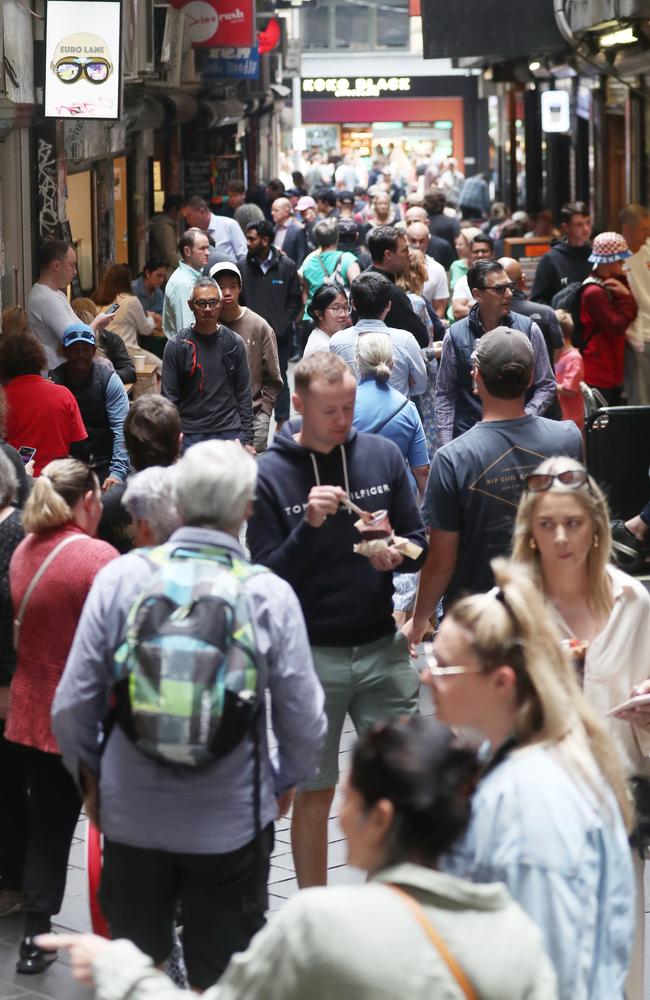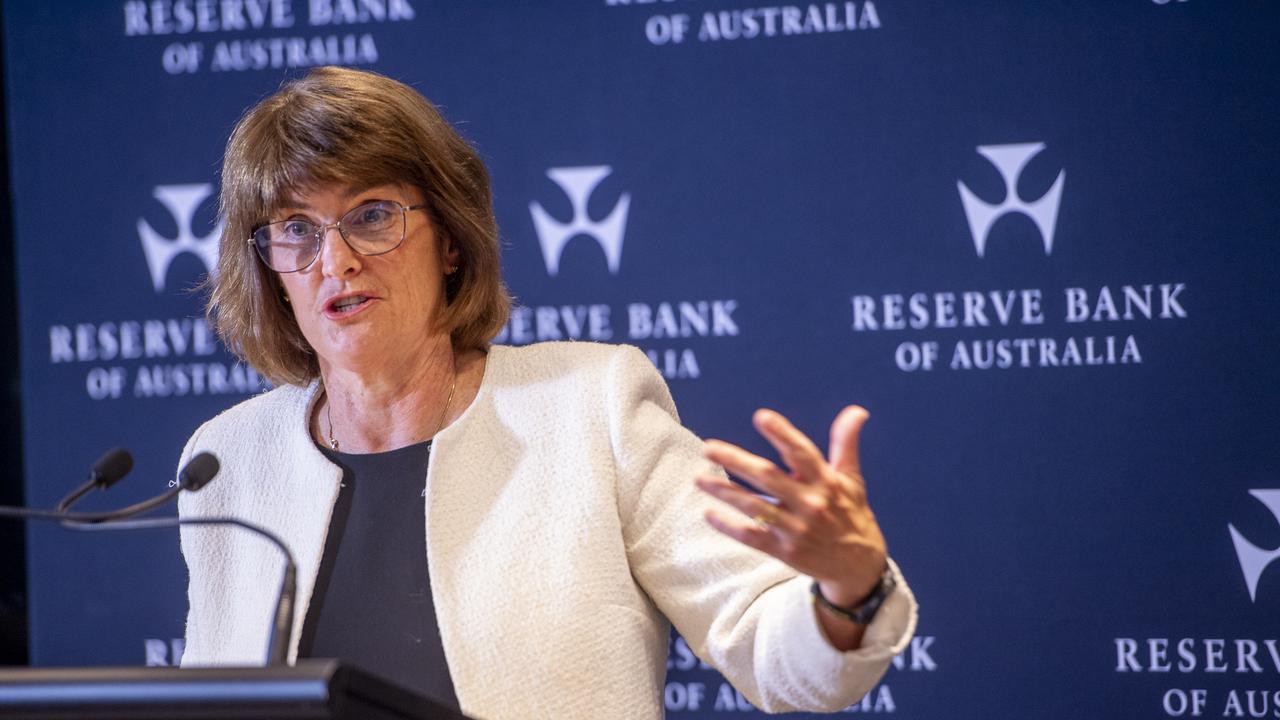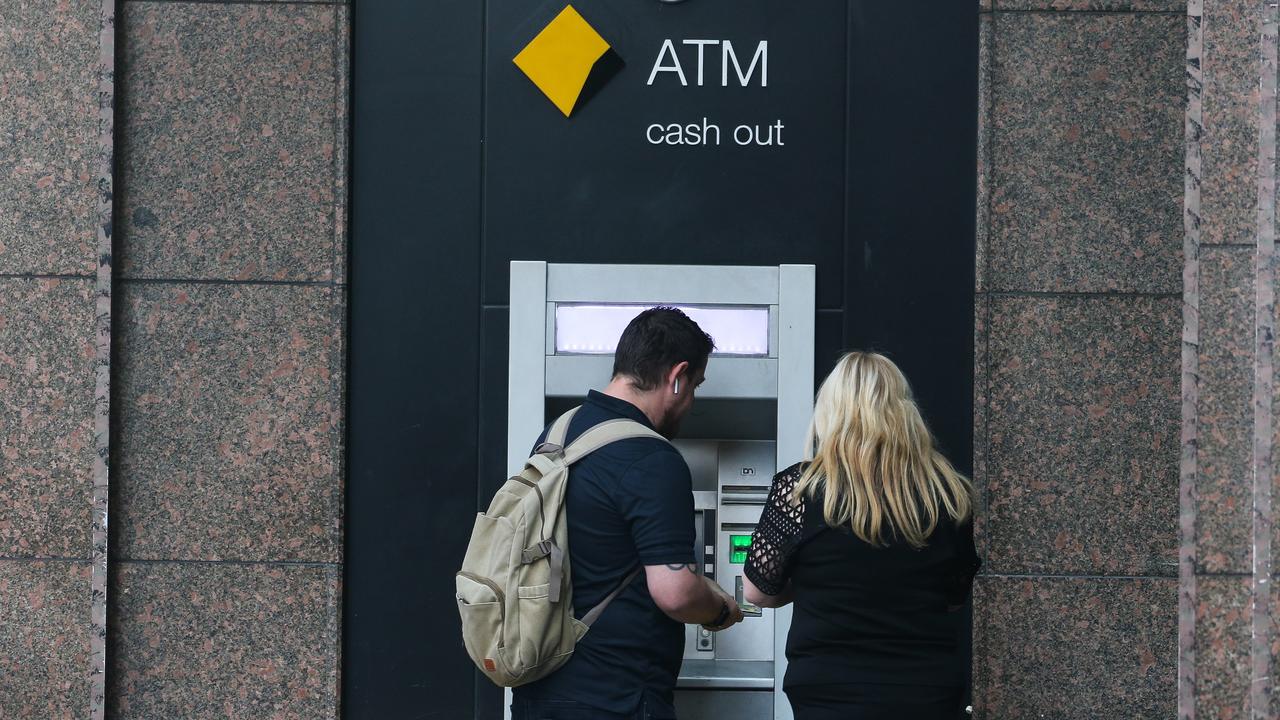‘Actually make more money’: Infuriating truth behind RBA’s interest rate hikes
Damning new figures have revealed that the RBA’s brutal interest rate hikes are hurting one group of Aussies – while others live it up.

Interest Rates
Don't miss out on the headlines from Interest Rates. Followed categories will be added to My News.
OPINION
Older Australians have helped drive the cost of living crisis by spending too much.
It’s not their fault, though. It’s the fault of federal government spending and outdated and rigid economic systems that make interest rates the main way of controlling inflation.
The method of stabilising inflation and economic growth via interest rates is pretty straightforward – if you lower interest rates, then you encourage people to borrow money which they then spend to power the economy, and if you increase interest rates, they give more money to the bank and less to businesses, thus the economy slows.
But the only problem is that raising interest rates, which is what the Reserve Bank of Australia did to help slow inflation, means people who already have money in savings – those less likely to be hurt by a cost of living crisis – actually make more money.

Whether out of necessity or luxury, they generally spend it.
By virtue of having worked longer and either planning for or being in retirement, older people tend to have more savings and fewer debts.
Which is why new data from Commonwealth Bank shows that, for the second year in a row, people under the age of 40 have been spending less and those 40 or older have been spending more.
From July to September, compared to the same period last year, those aged 18-29 cut essential spending by 2.3 per cent and 30 to 39-year-olds by 1.1 per cent.
Beyond that, every age group spent more – the 40-49 age bracket increased spending by 1.8 per cent, 50-59 by 2.3 per cent, 60-69 by 3.6 per cent and 70-plus by a massive 7.4 per cent.
The numbers are almost identical for discretionary spending.
MORE: RBA must move now ‘to save Christmas’

That’s not to say that people 40 and older suddenly felt rich, but they did have the wherewithal to spend more than they did a year ago, unlike younger cohorts.
It’s also worth noting that 60-plus spending increased above the rate of inflation.
The effect of that is that younger people and families are doing the lion’s share of the work to reduce inflation by spending less, while others hinder the process by spending more.
One of the causes of older people spending more is the increased cost of insurance and medical services, both considered essentials. But those aged 60-plus also significantly increased spending on the non-essential categories of travel and general retail.
Again, the blame does not lie at the feet of older Australians, but a system that disproportionately punishes younger people.
The RBA has only one lever to pull – interest rates. That means people with mortgages and other loans (or those who are affected by them, such as renters), who are likely to be younger, have less to spend while older Australians with savings end up with more to spend.
MORE: Surprise rates call traps buyers

Interest rates are a blunt instrument. They only hurt some people. So while we’ve been in a cost of living crisis, not everyone has been called upon to do their bit to fix it.
They are, by their nature, an unfair way of controlling the economy.
There has to be another lever we can pull that spreads the burden more evenly.
Federal government spending is a significant driver of inflation and the RBA has warned as much. The government needs to reign in its spending just as some households have.
Smarter minds than mine can propose other measures – but two occasionally touted are to temporarily change GST or superannuation contributions.
MORE: Major problem facing Aussies after RBA change

A higher rate of GST would apply to every spending Australian, including retirees, thus providing a more even removal of money from the economy. The downside to that is that the government takes it all.
Increased superannuation contributions would not take in retirees but it would involve roughly twice as many people as pay mortgages and provide the benefit of more income in retirement while also correcting inflation.
Conversely, both could be decreased when you need to boost consumer spending.
Whatever it is, we need something other than interest rate changes – because the current system is patently unfair.
MORE: ‘It’s a stretch’: Experts slam broke Aussies
Originally published as ‘Actually make more money’: Infuriating truth behind RBA’s interest rate hikes









